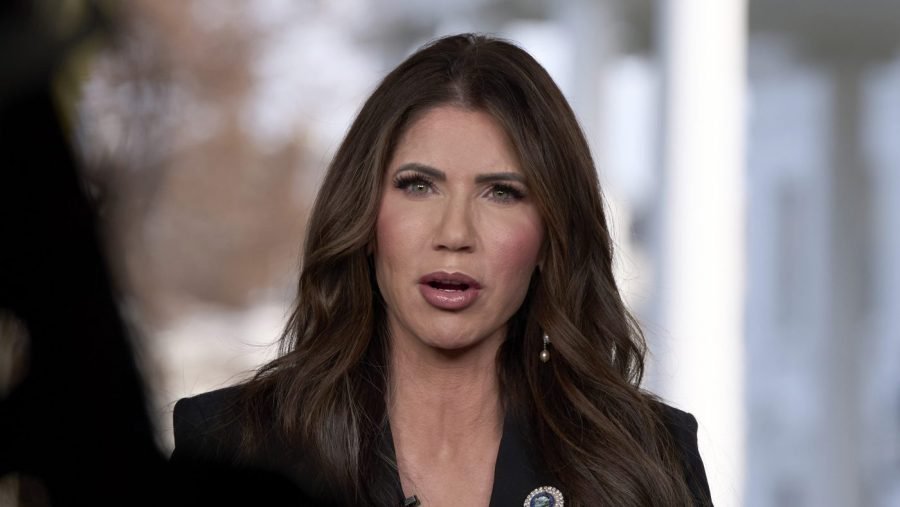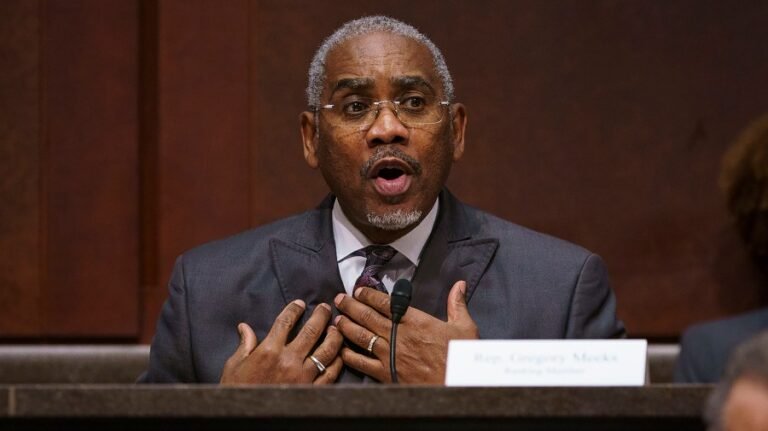
A Jewish civil rights group is asking the Department of Homeland Security (DHS) how it plans to evaluate migrants’ social media accounts after the agency said it would use antisemitic content as a grounds for denying immigration benefits.
The department said Wednesday that it would “begin considering aliens’ antisemitic activity on social media” as it weighs whether to approve applications for green cards or student visas.
But the Jewish Council for Public Affairs (JCPA), an 80-year-old, nonpartisan Jewish advocacy group, asked DHS how it plans to make that evaluation.
“Make no mistake: the threat of antisemitism is real and rising in the United States and around the globe,” the group’s CEO Amy Spitalnick wrote in a letter to Homeland Security Secretary Kristi Noem.
“At the same time, this new policy raises significant questions as to how it will be applied — particularly as many in the Jewish community have already expressed deep concerns about how our legitimate fears of antisemitism are being used as the pretext to advance policies that undermine rights such as due process and our core democratic norms and values, which ultimately threatens the safety of Jews and all communities.”
The notice from the department said the new policy would be used to target those “who support antisemitic terrorism, violent antisemitic ideologies and antisemitic terrorist organizations such as Hamas, Palestinian Islamic Jihad, Hezbollah, or Ansar Allah aka: ‘the Houthis.’”
But it comes as the Trump administration has stripped more than 300 student visas and also arrested some who have participated in protests about the Israel-Hamas war in Gaza. While the Trump administration has asserted those arrested have supported Hamas, critics say lawful first amendment protests have been mischaracterized as part of a broader crackdown on free speech.
JCPA noted that DHS said the new policy would be applied to those “affiliated with educational institutions linked to antisemitic activity.”
“How is that affiliation being defined? Does there have to be antisemitic activity on the applicant’s part, or is merely attending a university where someone else espoused antisemitism enough to be denied entry?” Spitalnick asked.
The group also asked about other forms of extremism and whether DHS has plans to evaluate any applicant’s support for any neo-Nazi or white supremacist groups.
“Will engaging in other forms of hate — such as racism, anti-Muslim prejudice, antiLGBTQ hatred, or misogyny — also preclude entry?” the letter asks.
The group also sought more details about how the review would be carried out, asking what search tools would be used, who would be making the decision and if applicants from all countries would be screened.
JCPA argues that Jewish safety “is inextricably linked with inclusive democracy in which everyone’s fundamental rights are protected.”
DHS did not immediately respond to a request for comment.
In its Wednesday release, it said it would consider any content “that indicates an alien endorsing, espousing, promoting, or supporting antisemitic terrorism, [or] antisemitic terrorist organizations.”
“There is no room in the United States for the rest of the world’s terrorist sympathizers, and we are under no obligation to admit them or let them stay here,” DHS spokeswoman Tricia McLaughlin said in a release.
“Sec. Noem has made it clear that anyone who thinks they can come to America and hide behind the First Amendment to advocate for anti-Semitic violence and terrorism – think again. You are not welcome here.”
And in a Thursday social media post, U.S. Immigration and Customs Enforcement (ICE) also drew attention for listing “ideas” as among the items the agency is required to stop “if it crosses the U.S. border illegally.”
A number of Jewish groups have spoken out against the plans to review social media for antisemitic content.
“We already know that President Trump doesn’t shy away from breaking bread with and hiring antisemites. And he has already weaponized antisemitism to silence those he disagrees with and to strip funding from universities,” New Jewish Narrative, a progressive group, said in a statement when the policy was announced.
“Antisemitism is a real and very serious problem, but this is not the answer. Given Trump’s track record, we already know that this move is not genuinely about protecting American Jews.”


